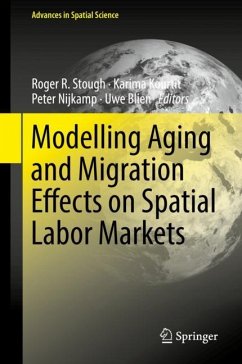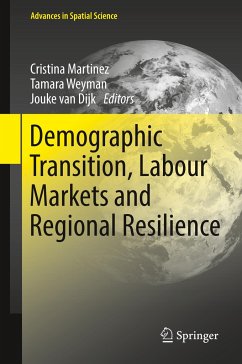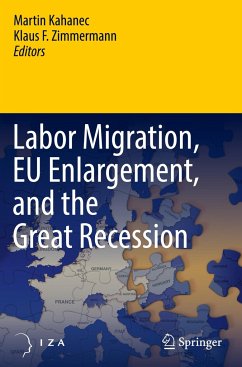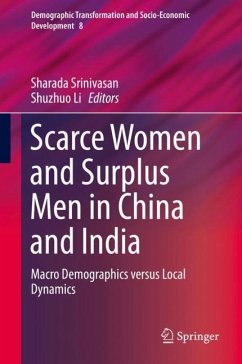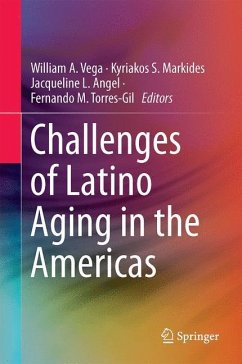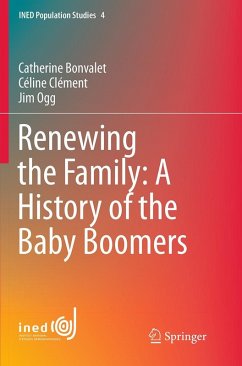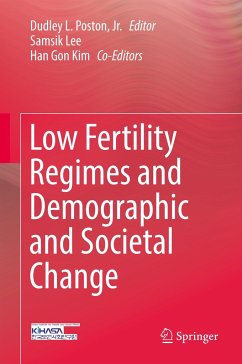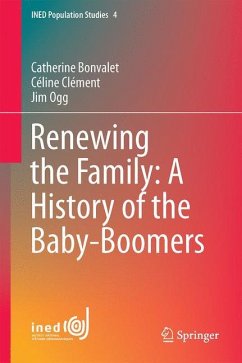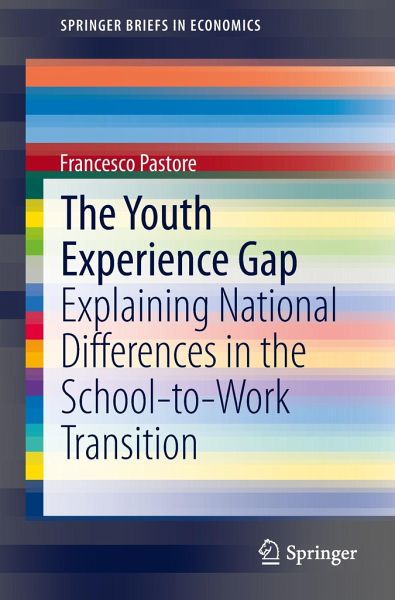
The Youth Experience Gap
Explaining National Differences in the School-to-Work Transition

PAYBACK Punkte
19 °P sammeln!
"The education to work transition of young people is key to a successful work-life and to fight youth unemployment. The book provides an impressive outline of the facts and convincing insights of the potential causes. This offers a large and broader audience help to adjust properly to achieve a better life."Klaus F. Zimmermann, IZA, Bonn, GermanyThis work points to the youth experience gap as a key concept to explain the meager employment opportunities and earnings many young people face.The transition from education to work remains a long dark tunnel around the world. However, this book shows...
"The education to work transition of young people is key to a successful work-life and to fight youth unemployment. The book provides an impressive outline of the facts and convincing insights of the potential causes. This offers a large and broader audience help to adjust properly to achieve a better life."
Klaus F. Zimmermann, IZA, Bonn, Germany
This work points to the youth experience gap as a key concept to explain the meager employment opportunities and earnings many young people face.The transition from education to work remains a long dark tunnel around the world. However, this book shows that there are striking differences between countries: in Germany, the young people of today are no worse off than their adult counterparts, while in Southern European and Eastern European countries they fare 3 through 4 times worse.
The current economic and financial crisis has further exacerbated the situation for young people in many advanced economies. Observers are divided as to the optimal design of youth employment policy. Liberalists believe that the market itself should address youth disadvantages. More flexible labor markets should also guarantee greater labor turnover, including temporary work, so as to allow young people to move from one job to the next until they accumulate the work experience they need to become more employable and find the right career. In contrast, other economists oppose approaches focusing on entry flexibility and temporary work, claiming that the former type helps only the most skilled and motivated target groups, while the latter only allows young people to gather generic, not job-specific work experience.
Klaus F. Zimmermann, IZA, Bonn, Germany
This work points to the youth experience gap as a key concept to explain the meager employment opportunities and earnings many young people face.The transition from education to work remains a long dark tunnel around the world. However, this book shows that there are striking differences between countries: in Germany, the young people of today are no worse off than their adult counterparts, while in Southern European and Eastern European countries they fare 3 through 4 times worse.
The current economic and financial crisis has further exacerbated the situation for young people in many advanced economies. Observers are divided as to the optimal design of youth employment policy. Liberalists believe that the market itself should address youth disadvantages. More flexible labor markets should also guarantee greater labor turnover, including temporary work, so as to allow young people to move from one job to the next until they accumulate the work experience they need to become more employable and find the right career. In contrast, other economists oppose approaches focusing on entry flexibility and temporary work, claiming that the former type helps only the most skilled and motivated target groups, while the latter only allows young people to gather generic, not job-specific work experience.





